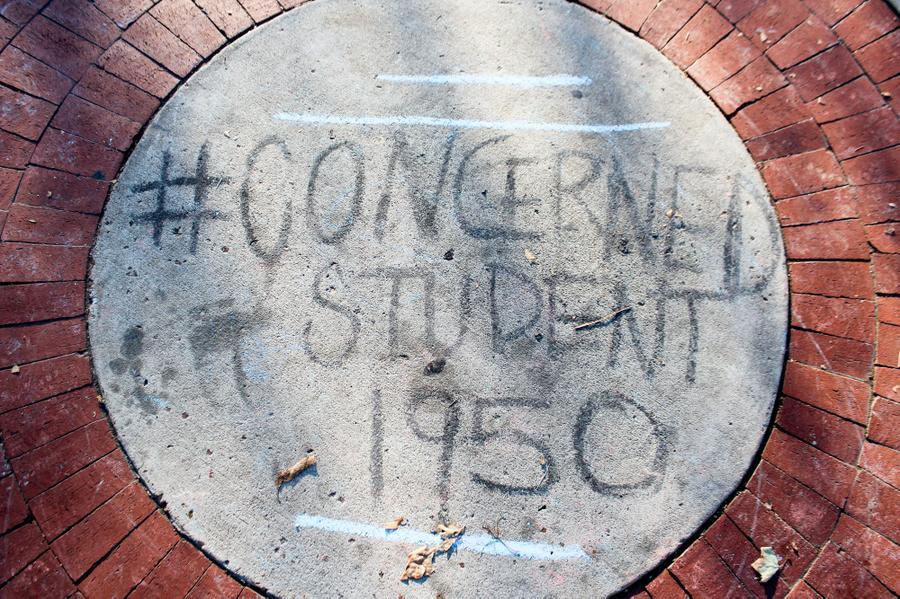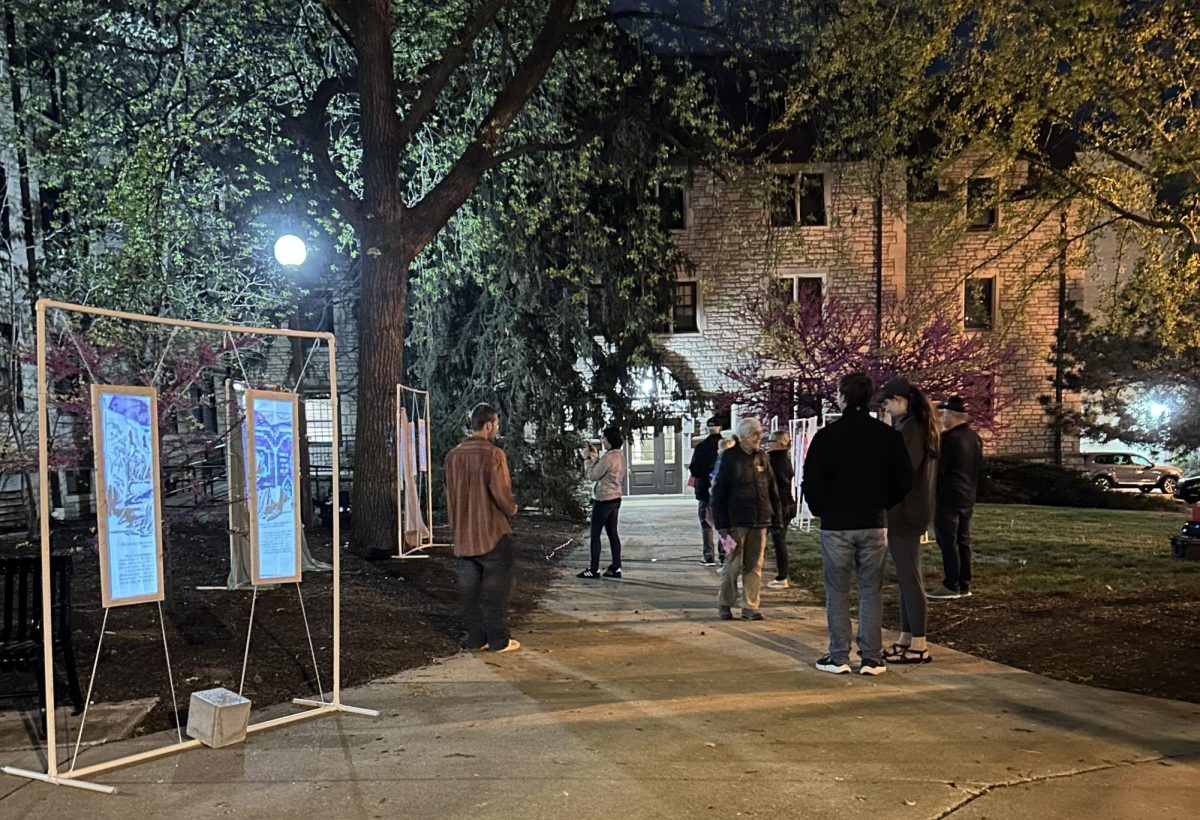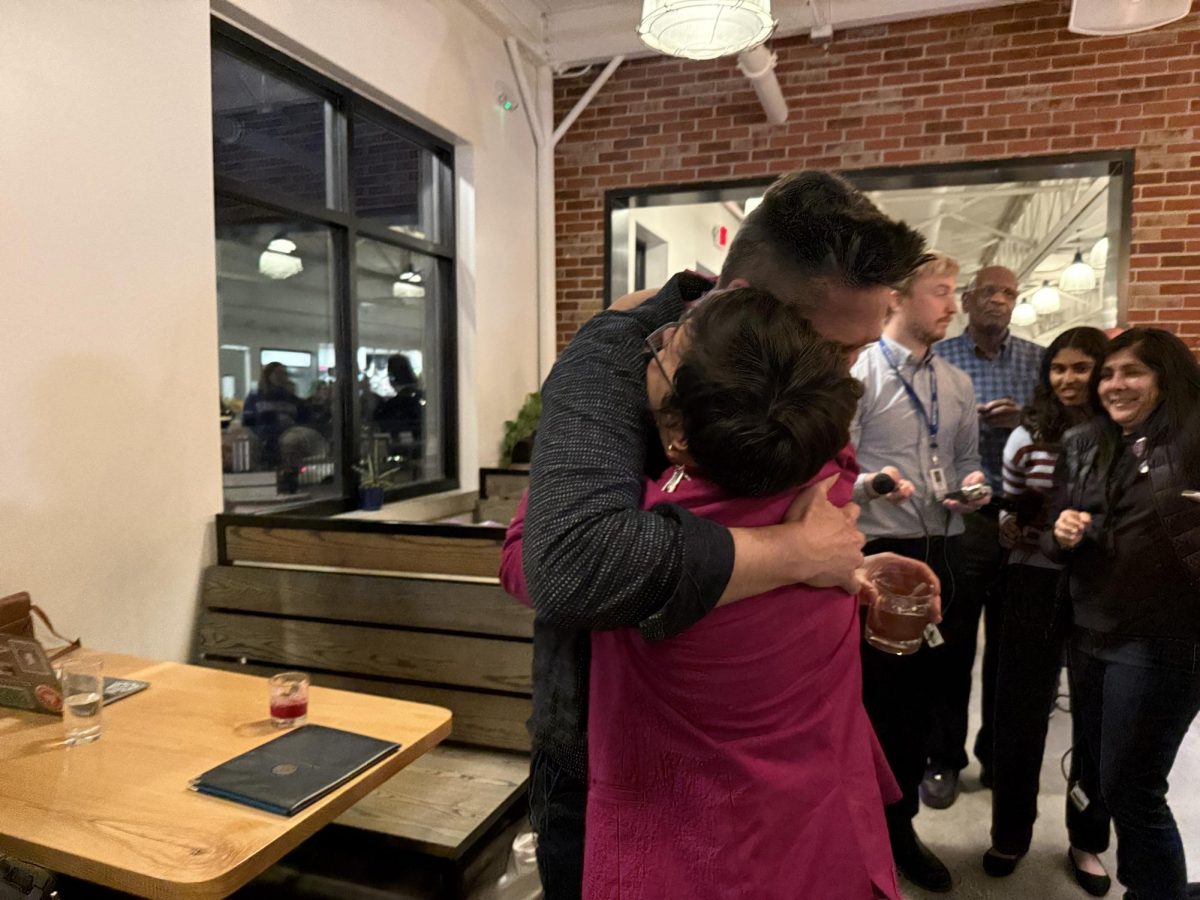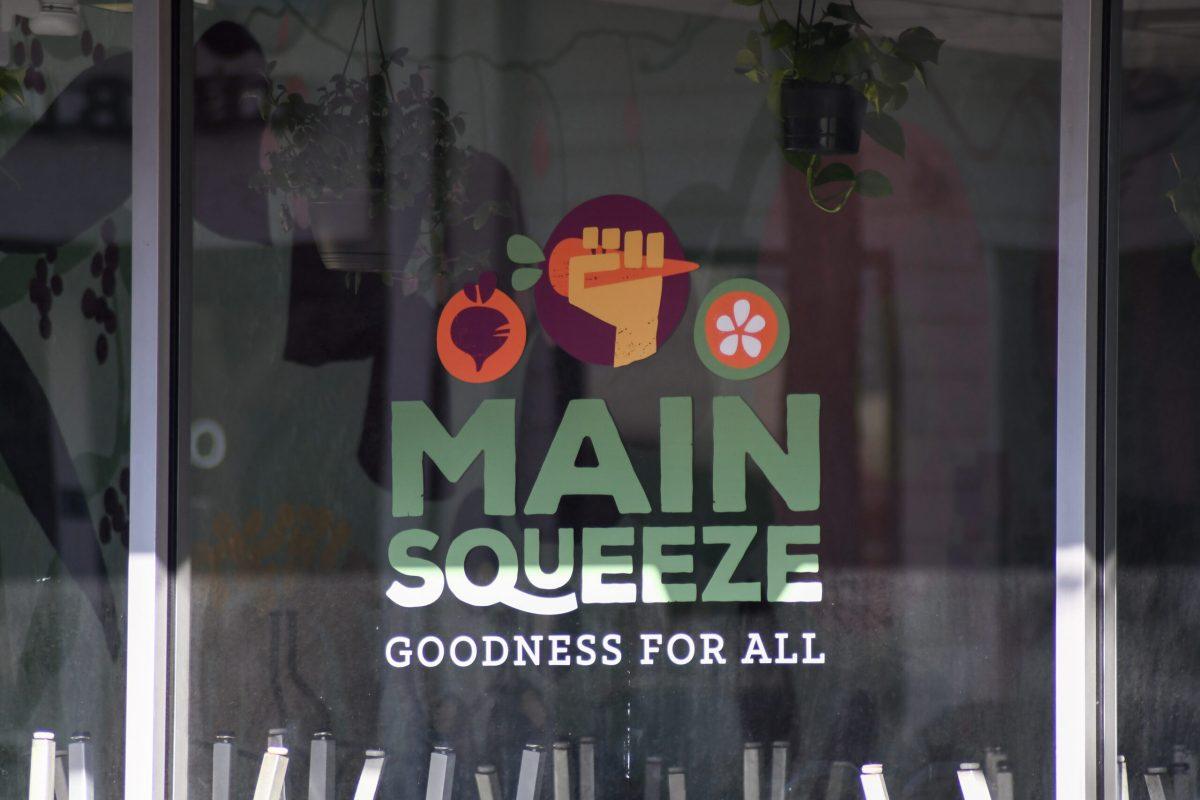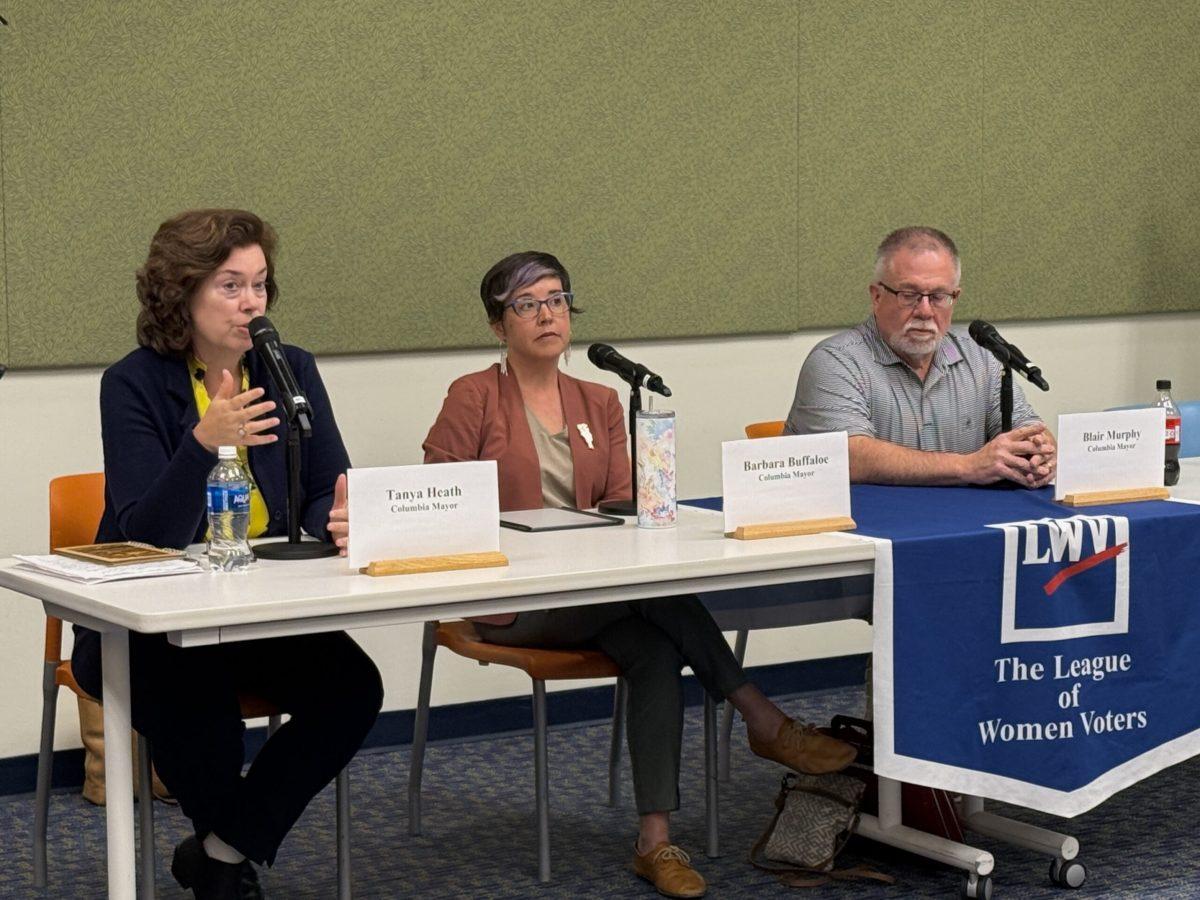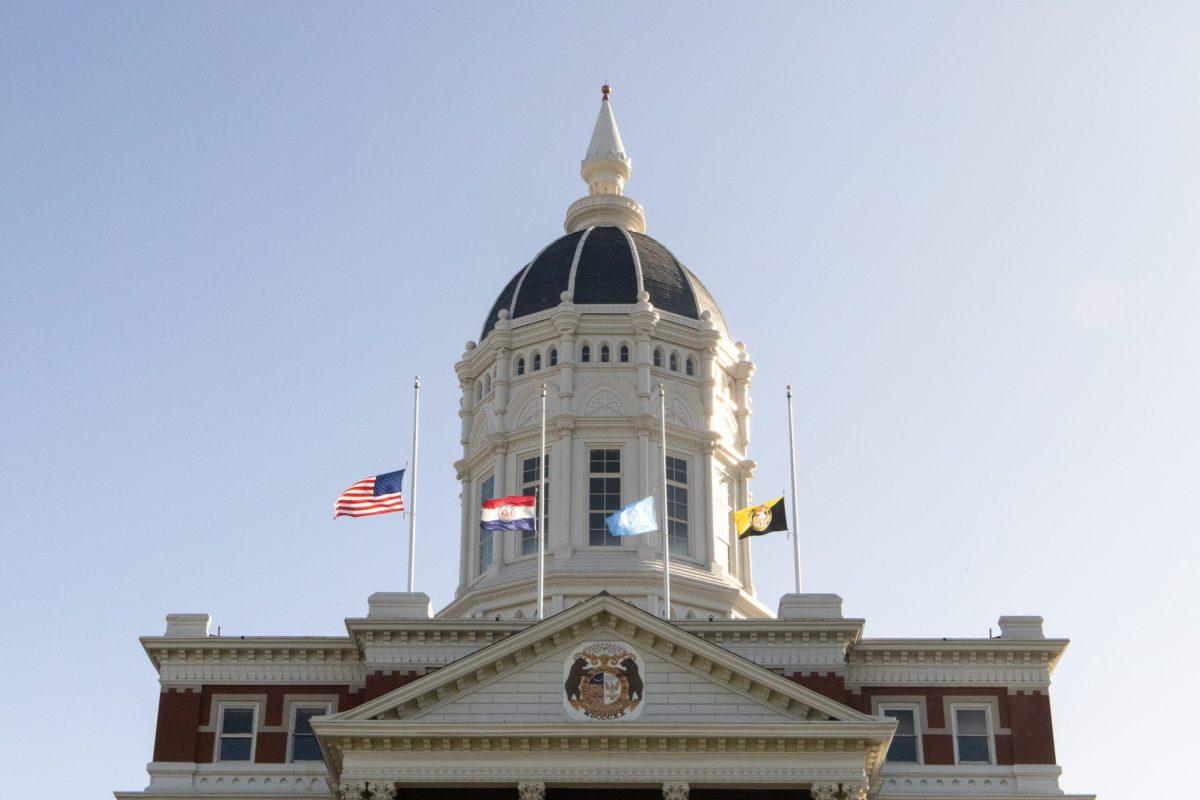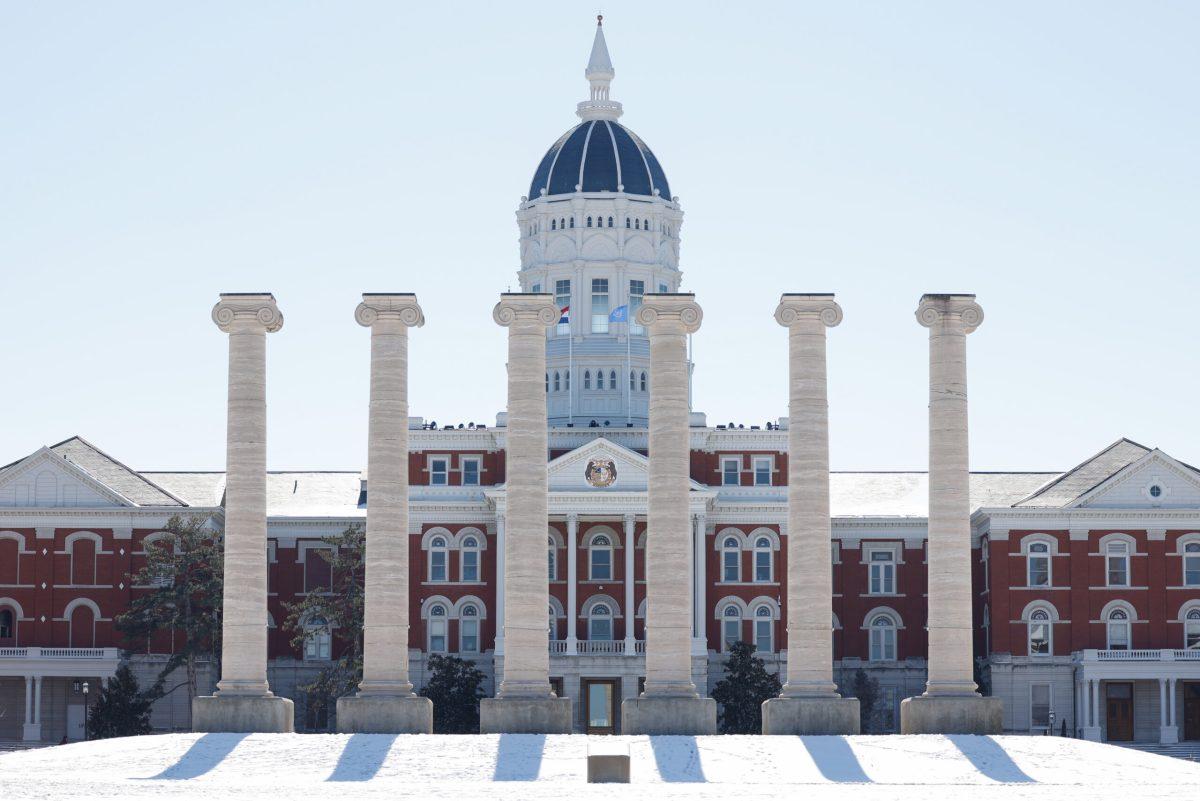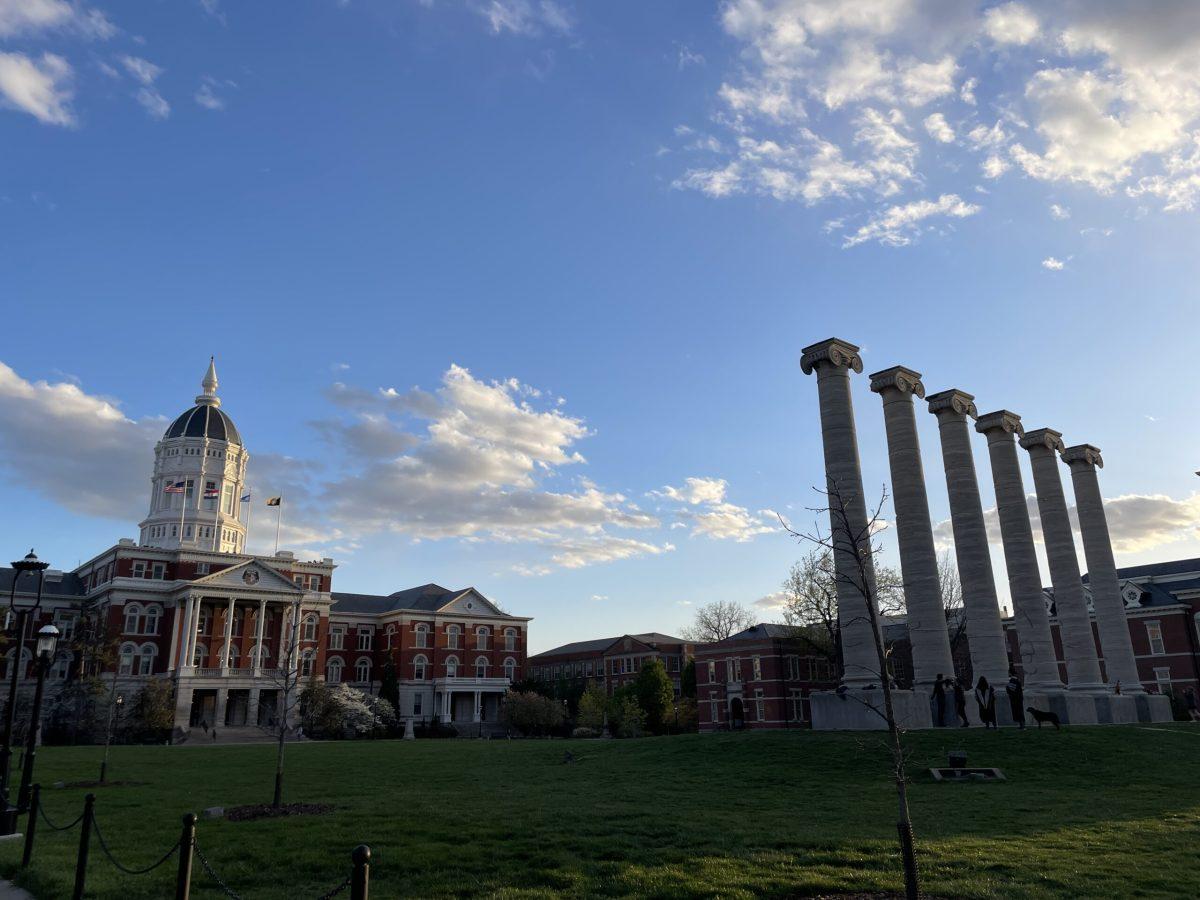A movement that generated national attention, forced out UM System President Tim Wolfe and Chancellor R. Bowen Loftin and generated support from colleges across the country, started with a simple, vague message in a GroupMe.
“Who’s interested in planning something?” it read.
It was mid-September. Reuben Faloughi, a graduate student, liked the message. And with that, Faloughi and 10 others became the original 11 founders of Concerned Student 1950. They had no idea how big the movement would become.
“Nobody thought it was going to be a group,” Faloughi said. “Nobody thought that it was going to become a brand. And ultimately, we didn’t even know that we were going to do a demonstration during the homecoming parade.”
Some of the original 11 already knew each other because of their participation in the [“die-in” event](https://www.themaneater.com/stories/2014/12/3/mu4mikebrown-demonstration-draws-hundreds/) during the MU4MikeBrown movement in fall 2014. It’s where many of the original members got their start in organizing and planning change.
During Concerned Student 1950’s press conference after Wolfe’s resignation on Nov. 9, Jonathan Butler made sure to give credit to the activists who came before.
“When you look at what’s been happening on campus, especially in terms of black students, I would be remiss and it would be inappropriate if I did not acknowledge the people who got us here,” Butler said. “Specifically, when you look at post-Ferguson activism that happened here at the university, the movement … was ignited by three queer, black women who started MU4MikeBrown.”
Concerned Student 1950 met for the first time three weeks before the Homecoming parade. Although they didn’t know each other well, their desire to change the culture of race on campus helped them bond quickly, Faloughi said.
>“Nobody thought it was going to be a group. Nobody thought that it was going to become a brand.” – Reuben Faloughi
“When there’s new people that you don’t know there’s always some skepticism,” Faloughi said. “Ultimately, we still had the same goals. We had shared experiences being black and marginalized on the campus. I think in that regard, we knew that we were coming together for a purpose that was bigger than us.”
The group spent several days together to become more familiar with each other and plan their course of action. At one of the first meetings, someone brought up the idea to hold a demonstration during the Homecoming parade.
Three weeks later, the original 11 members of Concerned Student 1950 formed a human chain [during the Homecoming parade](https://www.themaneater.com/stories/2015/10/16/lbc-supports-homecoming-protesters-administrators-/) to block Wolfe’s car, the UM System president at the time, and talked about the history of racism at MU. The human chain halted the entire Homecoming parade. Wolfe and some parade spectators did not acknowledge the protesters, and some members of the crowd started “M-I-Z, Z-O-U” chants to overpower the 11 members.
After the protesters were ushered away by police, the 11 members of Concerned Student 1950 went back to the Student Center for two and a half hours to process what had happened. Maxwell Little, a graduate student and one of the original 11 members, said the demonstration was emotionally, mentally and physically draining, but it became a turning point and a defining moment for the movement.
“We talked about the situation and talked about our personal lives,” Little said. “We talked about personal issues and experiences that nobody had shared with anyone else before. That moment brought us together like brothers and sisters.”
At first, the [“Racism Lives Here” protests](https://www.themaneater.com/stories/2015/9/25/protest-reminds-students-faculty-racism-lives-here/) and other social justice movements focused their efforts on ousting Loftin. But after the Homecoming parade, Concerned Student 1950 shifted their attention to Wolfe. And while the change was sudden, there was a specific reason to the shift.
“That’s when Tim Wolfe became the big fish, so to speak,” Faloughi said. “After that incident, it was like, if Tim Wolfe could get away with it, well then of course Loftin could get away with it because he’s Loftin’s boss.”
Long, late-night meetings at 1 or 2 a.m. became common. After the Homecoming demonstration, they were determined to accomplish their mission of ousting Wolfe, and they became even more committed to the movement.
“Continued negligence by Tim Wolfe created his own conditions for his departure,” Faloughi said. “He did this to himself.”
####“Beautiful Chaos”
Neither Faloughi nor Little was at Waffle House when graduate student Jonathan Butler announced his hunger strike to other members of the group Sunday, Nov. 1.
Faloughi wasn’t able to make it. And after being so focused on the movement in the months before, Little wanted to spend the free time he did have with his family. Both received word of Butler’s hunger strike via text, and both wanted to support Butler in whatever way they could.
“When JB has his mind set on something, there’s nothing you can do,” Little said. “So I was like, ‘I’m gonna support you, and I’m going to fast in solidarity with you because we’re a team.’”
Several of the other original 11 members went into organizing mode, which led to the campsite at Carnahan Quad. While the original purpose of the campsite was to simply raise awareness about Butler’s hunger strike and the issues facing minority communities at MU, it turned into much more.
>“It was hurtful, but it was empowering at the same time. This was the ultimate sacrifice. But it’s very sad to see your friend dying and you having to consider, ‘Is this his last breath?’” – Reuben Faloughi
It became a space to share personal experiences. It became a place for people to have critical conversations about racial climate. It became a place for marginalized students to feel welcomed.
“It was an amazing thing to see,” Faloughi said. “So much support and solidarity was shown through the items (people donated), the messages … I took pictures of some of the messages because they were so touching.”
Places like the campsite were empowering, but supporters of the movement had to also watch as Butler’s health slowly but steadily started to decline.
“It was tough. It hurt,” Faloughi said. “It was hurtful, but it was empowering at the same time. This was the ultimate sacrifice. But it’s very sad to see your friend dying and you having to consider, ‘Is this his last breath?’”
But one week after Butler announced his hunger strike, all of the struggle became worth it. On Nov. 9, [Wolfe resigned and Loftin stepped down](https://www.themaneater.com/stories/2015/11/11/wolfe-loftin-step-down-allow-campus-heal/) from his position as chancellor to take a lesser role within the university.
Later that day, after the announcement, the original 11 members of Concerned Student 1950 [held a press conference](https://www.themaneater.com/stories/2015/11/9/concerned-student-1950-reacts-wolfes-resignation-n/) at a packed Traditions Plaza. Little called it an unforgettable moment.
Little has all of the articles from that day posted on his wall, and looking back on that moment, he still could not put his feelings in that moment into words.
“It was beautiful, beautiful chaos,” Little said. “I really can’t explain it. It was beautiful to me to stand with the people who stood with me on the frontlines and had my back through this whole experience.”
####“We’ve won some battles, but not the war”
On Dec. 2, Little, Faloughi and some of the other original 11 members of Concerned Student 1950 made a Skype call into a classroom full of 30 to 40 students studying higher education along with the chief diversity officer at Harvard University.
As those students prepared to head to academia to become professors, they asked Concerned Student 1950 how to foster discussions about important issues and how to support student activism at their universities.
It was then that Little began to realize and think about the gravity of what he and the 10 others had accomplished.
“With the tradition of Harvard, that elite tradition of higher education in the United States, I was just like, ‘Wow, we had a chance to speak to Harvard students in a class. We had that big of an impact,’” Little said.
Concerned Student 1950 has also garnered support from [more than 100 college campuses](https://www.themaneater.com/stories/2015/11/12/interactive-map-schools-nationwide-support-mu/) across the country, many of whom are also listing their own demands to their respective administrations. For Little, it’s an empowering feeling.
>“My view is that our society is built on racism. It’s in the fabric, the DNA of the United States. That’s the catch-22 of the struggle: you dedicate your life to fixing something that is possibly permanent.” – Reuben Faloughi
“What it means to me is that finally, marginalized students at predominantly white institutions are standing up and saying, ‘You know what? I’m done being oppressed, and it’s time for me to resist that oppression,’” Little said.
Faloughi echoed Little’s sentiments and was thankful for the nationwide support.
“It’s so empowering that our struggle means something to other people, or it’s a shared struggle with others,” Faloughi said. “To know that other students have that same experience and are willing to stand up with you because you did, it’s so empowering. It makes the sleepless nights worth it. It makes the threats worth it. It makes the struggle worth it.”
But while Concerned Student 1950 has generated national media attention and support from across the country, they know that there is still work to be done. Although they were successful in removing Wolfe and Loftin from their positions, they did not consider that a “win” for the movement.
The group still has seven other demands besides Wolfe’s resignation, including increasing black faculty and staff at MU, increasing funding for campus social justice centers, meeting the Legion of Black Collegians’ demands from 1969, and creating a “comprehensive racial awareness and inclusion curriculum.” They do not have any tangible evidence to show that race relations have improved on campus.
“I think the question is: Can you defeat racism or is it always present?” Faloughi said. “My view is that our society is built on racism. It’s in the fabric, the DNA of the United States. That’s the catch-22 of the struggle: you dedicate your life to fixing something that is possibly permanent.
“When I think about a win, I think of a war. We’ve won some battles, but we haven’t won the war. So maybe a win on this campus may look like having this campus really become a diverse and equitable place for all marginalized students.”
Faloughi recognizes the events during the week of the hunger strike may have polarized the campus, but he wants to foster discussion between the two groups.
“But both sides are going to have to listen,” Faloughi said. “Ultimately this is still an opportunity to show every college campus what change looks like, we’re writing the future right now.”
>”This institution will never be the same, and that’s saying a lot… Marginalized students on this campus have a voice now.” – Maxwell Little
The university has already started to build the foundation for improved race relations in the years to come. [Mike Middleton](https://www.themaneater.com/stories/2015/11/12/mike-middleton-named-interim-um-system-president/) became the interim UM System president and [Chuck Henson](https://www.themaneater.com/stories/2015/11/10/chuck-henson-announced-interim-vice-chancellor-inc/) became the new interim vice chancellor of diversity, equity and inclusion. Even though Little believes these are personnel moves that should have been made years earlier, he feels it is a step in the right direction.
“They’re making adjustments and making decisions that should have been made yesterday,” Little said. “This institution will never be the same, and that’s saying a lot. They may come up with new, sneaky ways to continue the oppression, but it’s not going to be like how it was before. Marginalized students on this campus have a voice now.”
Even though the university has taken steps to solve some of the problems, Concerned Student 1950 still wants more done. The group wants shared governance: students and staff to have input as the hiring process of future administrators continues.
But above all, Faloughi wants to continue generating awareness and educating students on campus about the issues.
“A majority of our campus doesn’t understand still,” Faloughi said. “They think some students got mad, started pouting and got the chancellor and president fired. That’s not awareness. So there still needs to be more awareness, and when you do generate that awareness, that’s when you can see what you can do.”

